Love is not enough. At least when it comes to puppies (maybe when it comes to anything…).
Raising a good dog means putting in the work when they are puppies. The genes and individuality of your puppy are out of your control, but there’s lots more that is within your control.
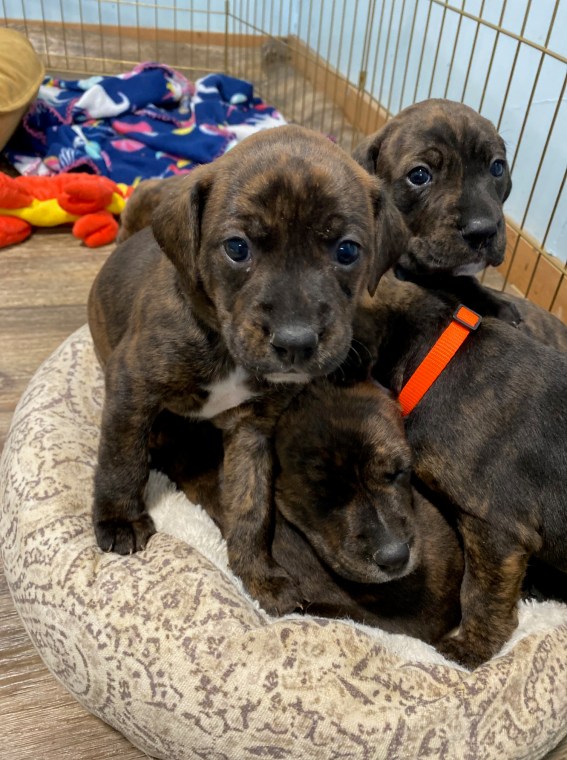
I think the most important elements are routine, training, socialization, and, the easy one—love.
Routines create a structure that makes puppies (and people) feel more secure. The Snack Cake puppies get up/go to bed, eat, nap, and play with me on a schedule. Because they are little and I control the food bowl and light switch, it’s not very hard to establish this routine.
They are too young to be crated separately, but at night, I move them to a smaller pen that only has room for a comfy bed they can snuggle in (two for this big bunch) and a puppy pad. After I settle them in there at bedtime, I turn off the light and close the door. The dark and quiet and lack of playthings translate to sleeping time.
During the day, I set up a little nest of blankets in a medium-sized crate, large enough that they all can pile in to nap, and they do. There aren’t any other comfy spots to lay down in their pen, so they quickly figure this out. Hopefully, this translates to them seeing a crate in their future home as their safe space. Mid-morning and mid-afternoon, I shut off the light and close the door so they can have ‘nap time’. Sometimes it stays quiet in there, but sometimes there’s a rumble. Either way, it’s the routine I’m going for—this is a time when the energy is low and you won’t see foster mom, so it’s a good time to sleep.
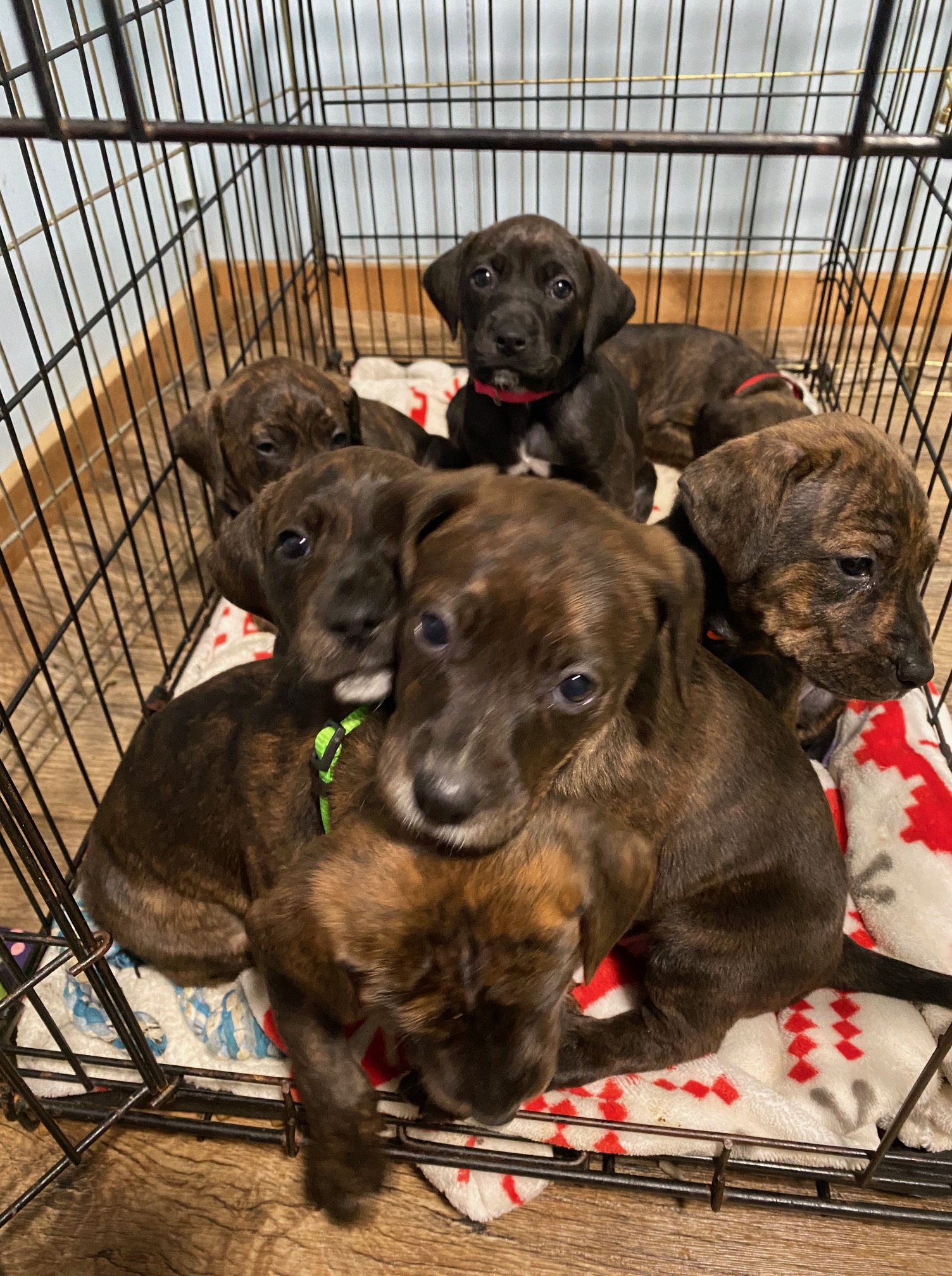
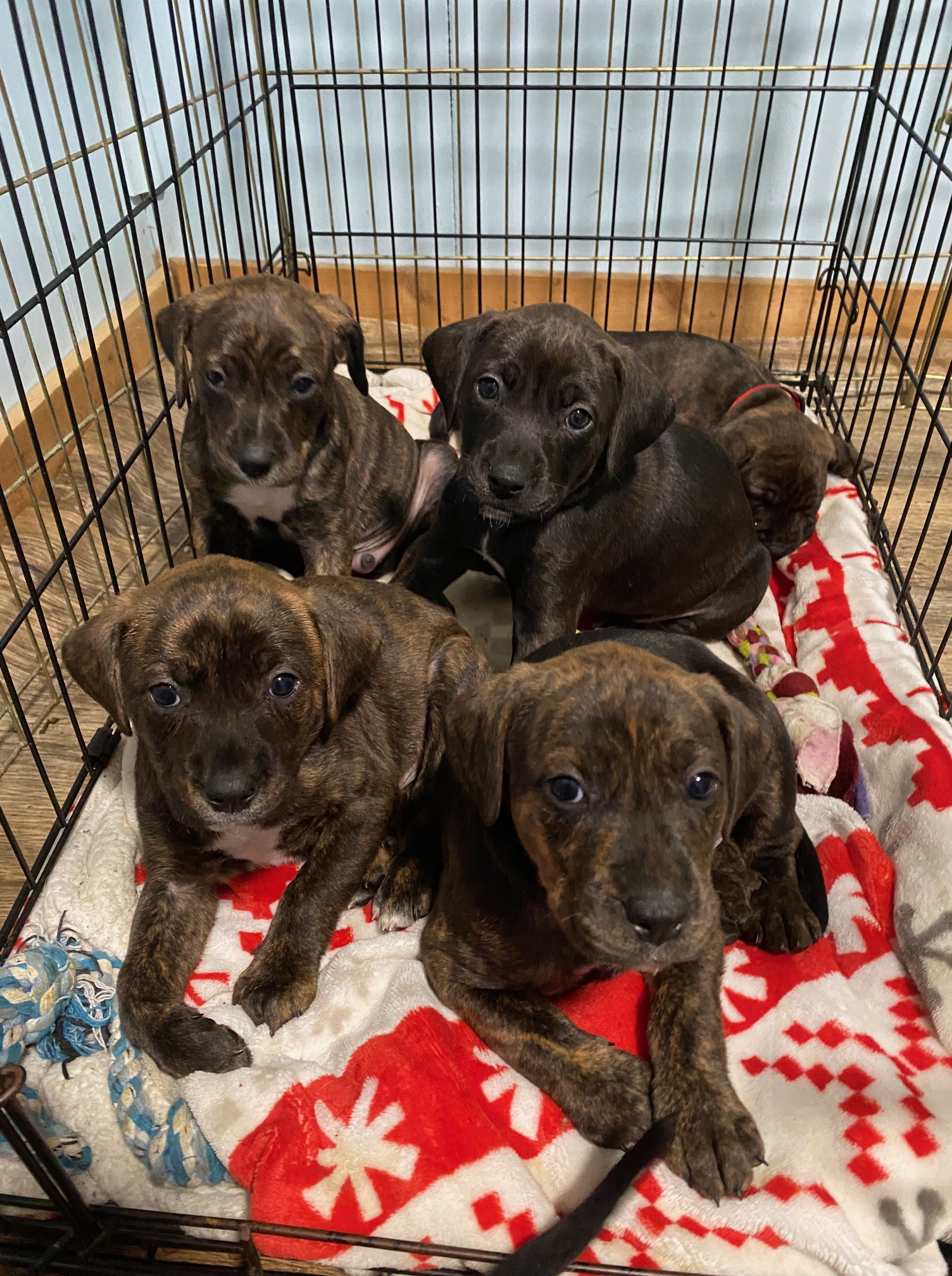
I feed them three times a day at set times in a separate space (which gives me time to clean their play/living area). And I go in the pen to play with them at set times (usually soon after they eat, but before they nap).
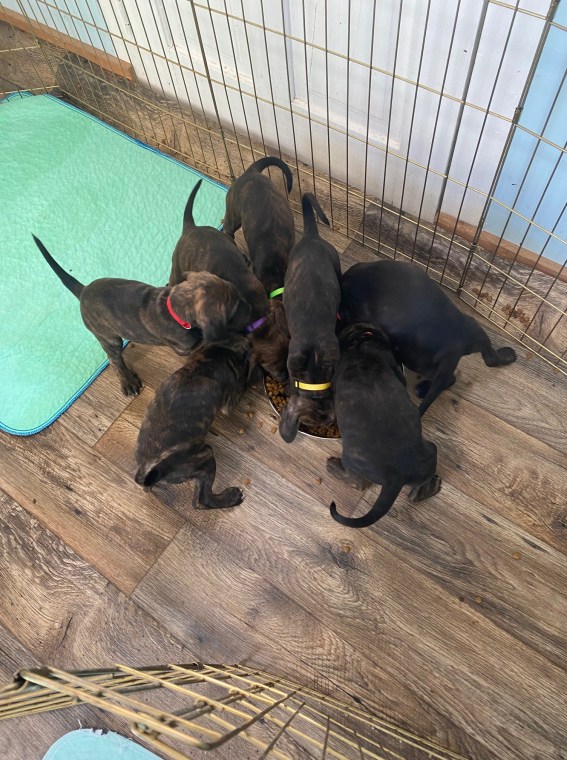
Especially as they are going through the weaning process, having a routine they learn to expect will help them feel more secure. Routine is the easy part. Training is the real work. To be honest, training four and five-week-old puppies is sometimes a challenge, but it’s not hard. Right now, we’re working on not-jumping-up-on-people and not-biting/chewing-people.
I don’t use treats because that would just short-circuit their brains and cause a brawl. Instead, I use the reward they want most of all—my attention. I give them pets and sweet words when they do what I want (don’t jump, don’t chew on me) and I ignore them when they don’t. The real trick is timing. And with seven puppies at once, that’s a real trick. (which is why I’m excited that I have a few volunteers coming to help – more please!)
I sit on a tiny stool so I’m close to their level. They begin yipping and jumping and throwing themselves at me, trying to bite my legs and shoes, anything to get my attention. I watch them and say nothing, not touching them until one of them sits and looks at me. As soon as that happens, I pet that puppy. If that puppy starts to chew my hand, I pull it away. If he continues to sit or even stand (but not jump), I’ll keep petting him – rubbing behind the ears, scratching his chest (the favorite pet), running my hand over him.
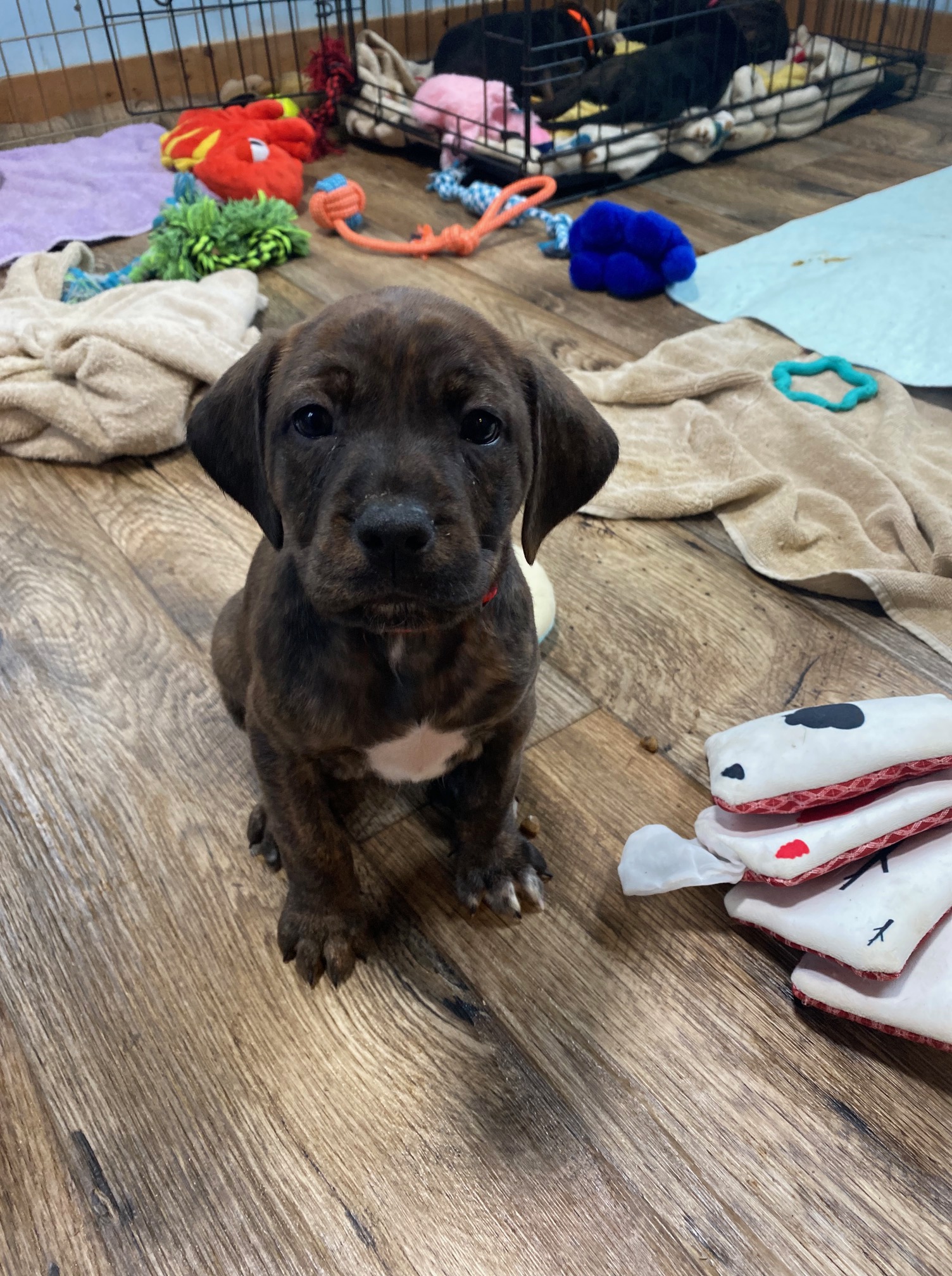


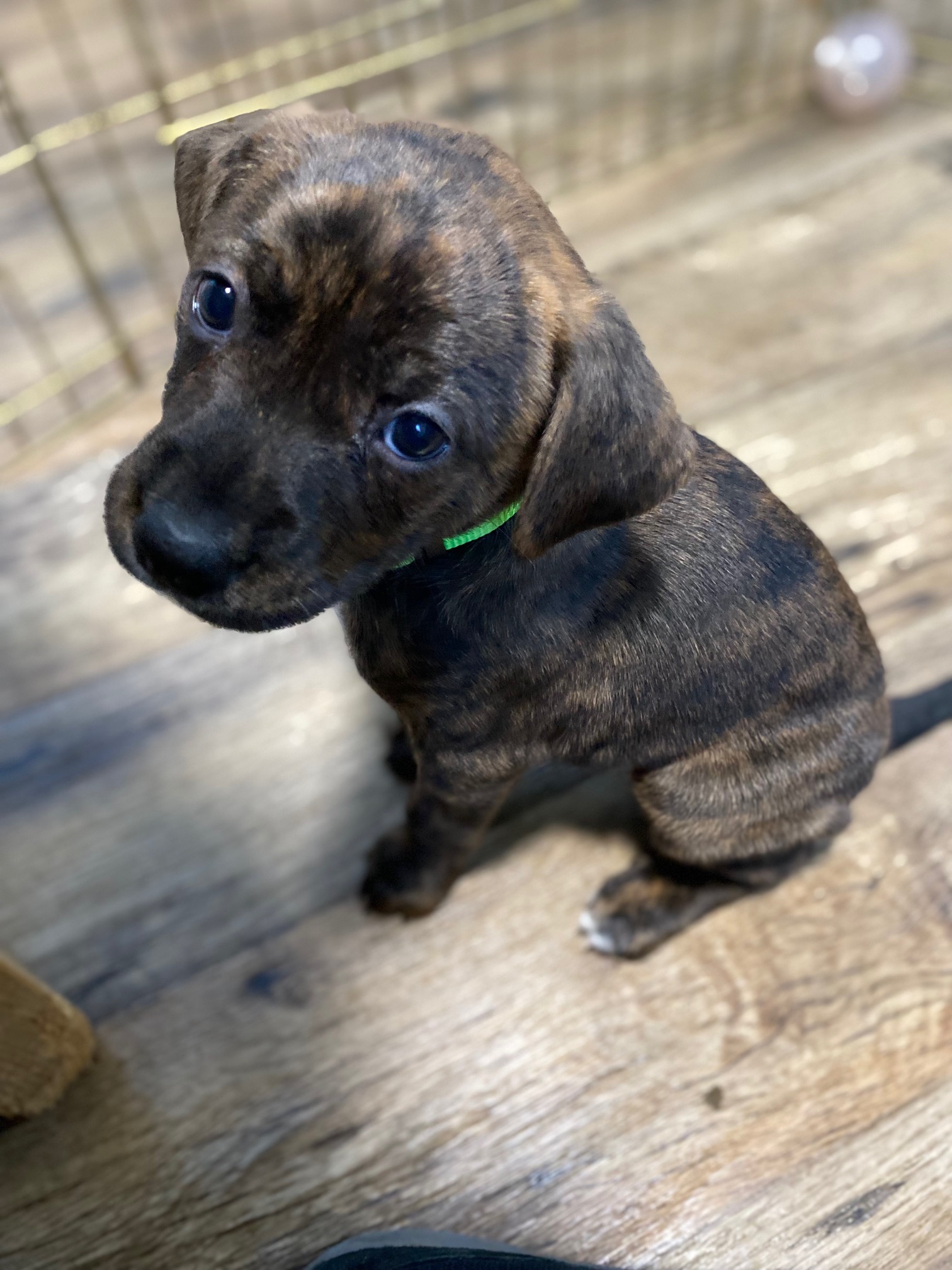
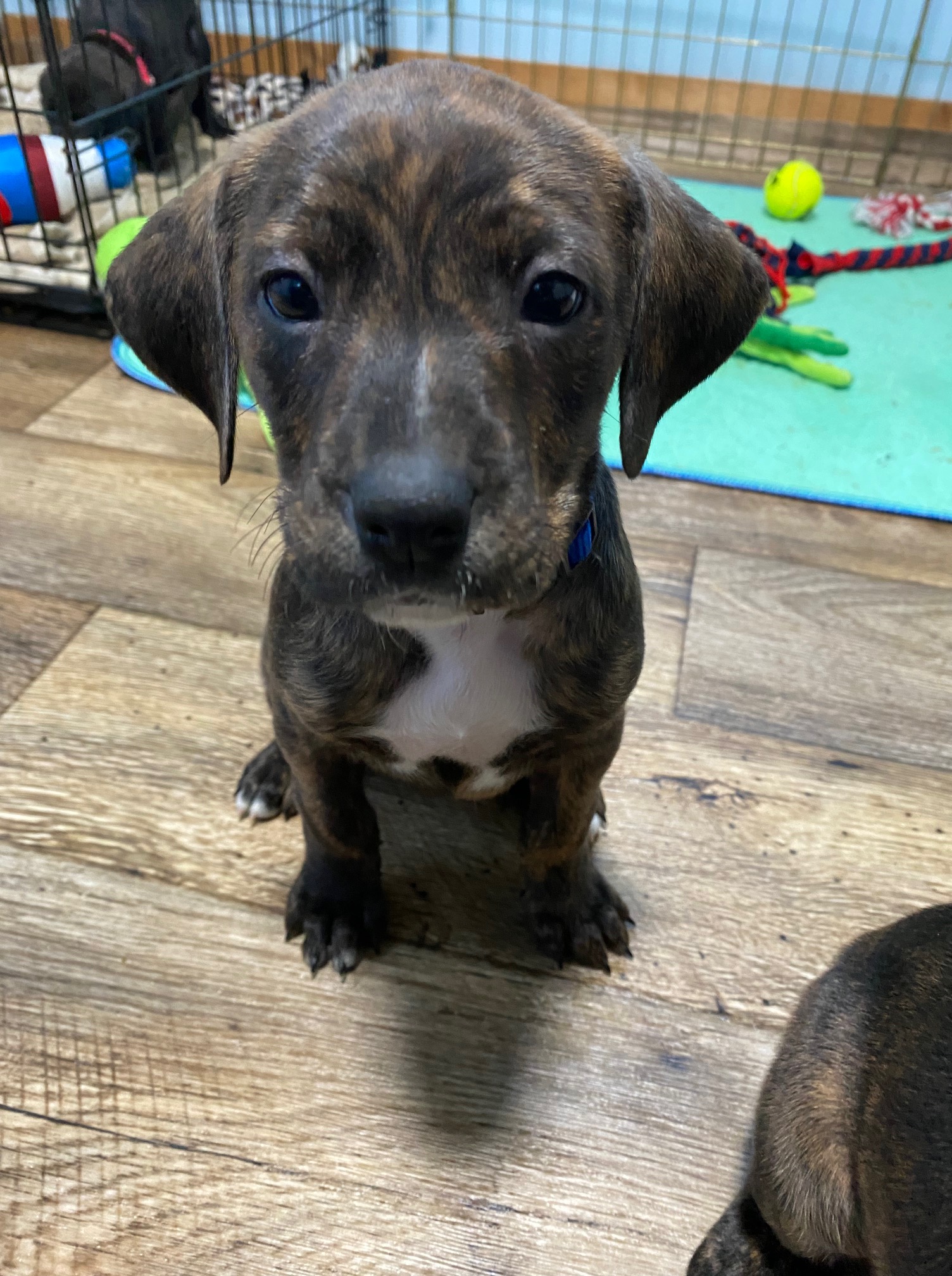
This rarely lasts long because puppies have no self-control at this age, so they will soon either bite my hand or launch themselves at me just like the other puppies, so I stop petting.
It’s amazing to see how quickly they pick this up. At this point, all of them understand they need to sit calmly to get attention, but it’s still hard for them to do this because they are competing for my attention and simply can’t help joining the throng angling for attention.
They’ll get better at this. By the time they reach 8 weeks, I’ll be able to introduce treats and they’ll be learning to sit on command (that’s the goal).
I also try to take each puppy out individually to snuggle, but this is time-consuming and I’m never able to hold them long. It’s definitely their favorite time.
Socializing is the part I need the most help with, although it’s truly the easy part. The puppies need to be exposed to lots of different people, and eventually animals. They love to be snuggled. And although sometimes they can’t help themselves and they just have to chew on the hands that love them, it’s still the most stress-relieving activity of all. My friend Holly comes by for puppy therapy when she can, so she can tell you.
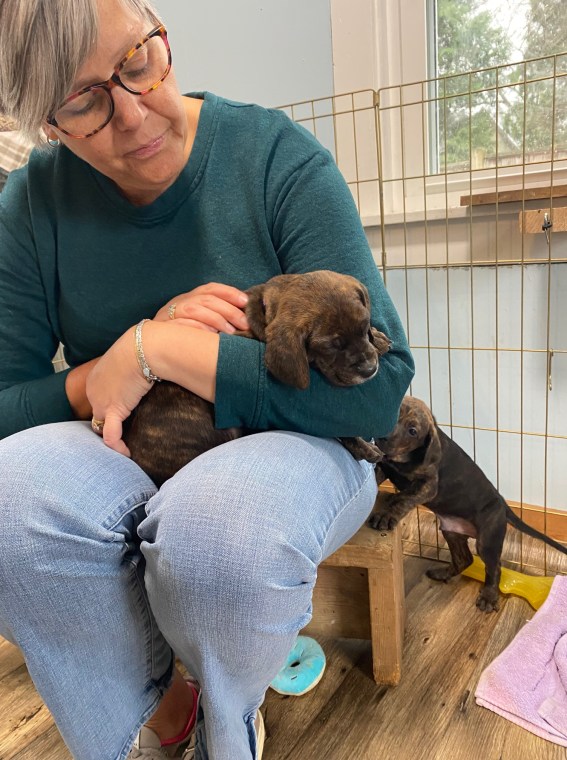
If you’d like to come help train/socialize the puppies, reach out to me (carasueachterberg@gmail.com or message me on Facebook).
The puppies are available for adoption through the Humane Society of Shenandoah County.
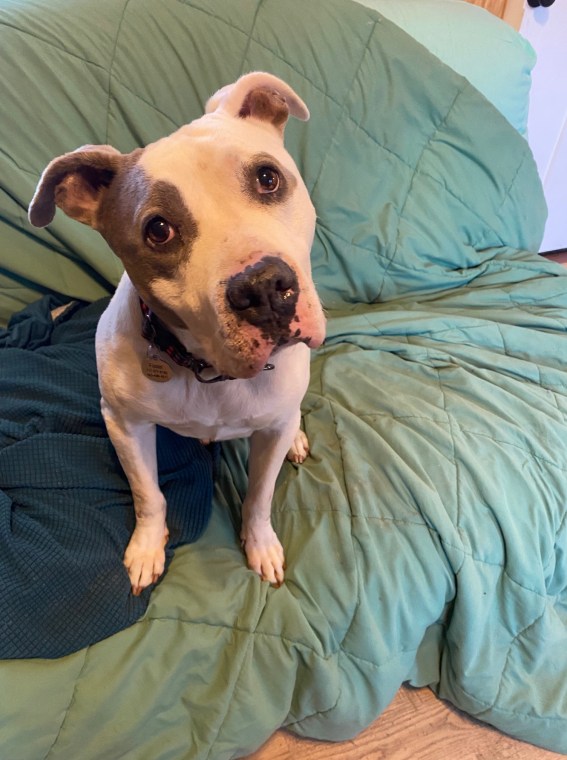
Gracie Lou is coming for the weekend! Gracie Lou is a five-year-old bulldog mix looking for a couch to call her own and a human to be her best friend. She’s spayed, microchipped, utd on shots, housetrained, and crate-trained.
If you’re interested in learning more about her (or meeting her!), message me.
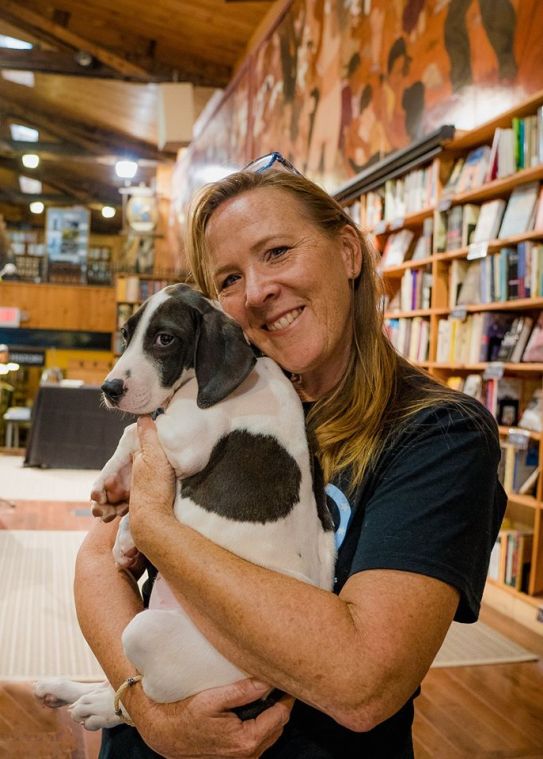
Until Each One Has a Home,
Cara
For information on me, my writing, and books, visit CaraWrites.com.
If you’d like regular updates of all our foster dogs past and present, plus occasional dog care/training tips, and occasional foster cat updates (!) be sure to join the Facebook group, Another Good Dog.
And if you’d like to know where all these dogs come from and how you can help solve the crisis of too many unwanted dogs in our shelters, visit WhoWillLetTheDogsOut.org and subscribe to our blog where we share stories of our travels to shelters, rescues, and dog pounds.
If you can’t get enough foster dog stories, check out my book: Another Good Dog: One Family and Fifty Foster Dogs . Or its follow up that takes you to the shelters in the south One Hundred Dogs & Counting: One Woman, Ten Thousand Miles, and a Journey Into the Heart of Shelters and Rescues.

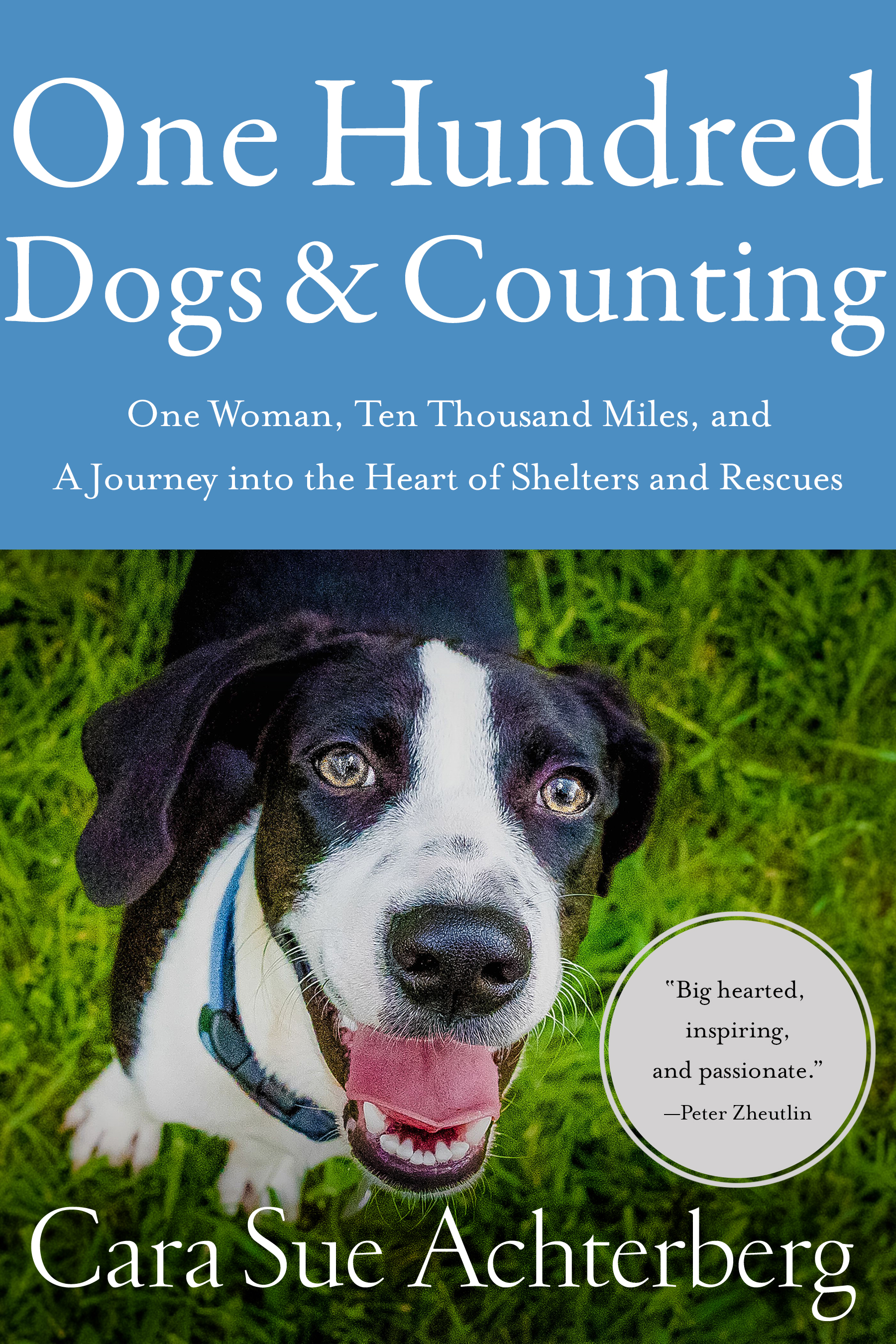
I love to hear from readers and dog-hearted people! Email me at carasueachterberg@gmail.com.
If you’d like to support the work we do (and save the rescue and me some money), shop our Amazon wishlist.


I have had only a couple young puppies. Bear was 4 months old as was Dusty. Teddy maybe 6. When I got Molly (8 weeks) Truffle (1 year) did most of the hard work. And Molly was just a very smart pup and I think her original people were good at puppies. Your method is so good — dogs love routine. I think it’s how they know that all is right with the world.
LikeLiked by 1 person
It took me too long to figure out that routines were necessary for dogs too – especially dogs who are unmoored from losing their family/home/all they know. They are life-saving.
LikeLiked by 1 person
It’s how many breeds know that things are OK.
LikeLiked by 1 person
They look so serious! It’s so great you have a routine, but man, a whole litter of puppies sound like so much work!
LikeLiked by 1 person
It IS a lot of work. Some more than others – these are hound puppies, and in my experience they have been much more work than other types (they simply do not understand the concept of puppy pads, and even if they do they have no qualms about running through the poop and spreading it everywhere).
LikeLike
Sounds like the perfect routine that should guarantee they’ll be a lovely addition to someone’s family.
LikeLiked by 1 person
That’s the plan!
LikeLiked by 1 person
I’m exhausted just reading about the routine! Bless you.
LikeLiked by 1 person
Me too.
LikeLiked by 1 person
I wish more people would put in the time required to help puppies grow up properly socialized, healthy and happy! Good for you!
LikeLiked by 1 person
me too!
LikeLiked by 1 person